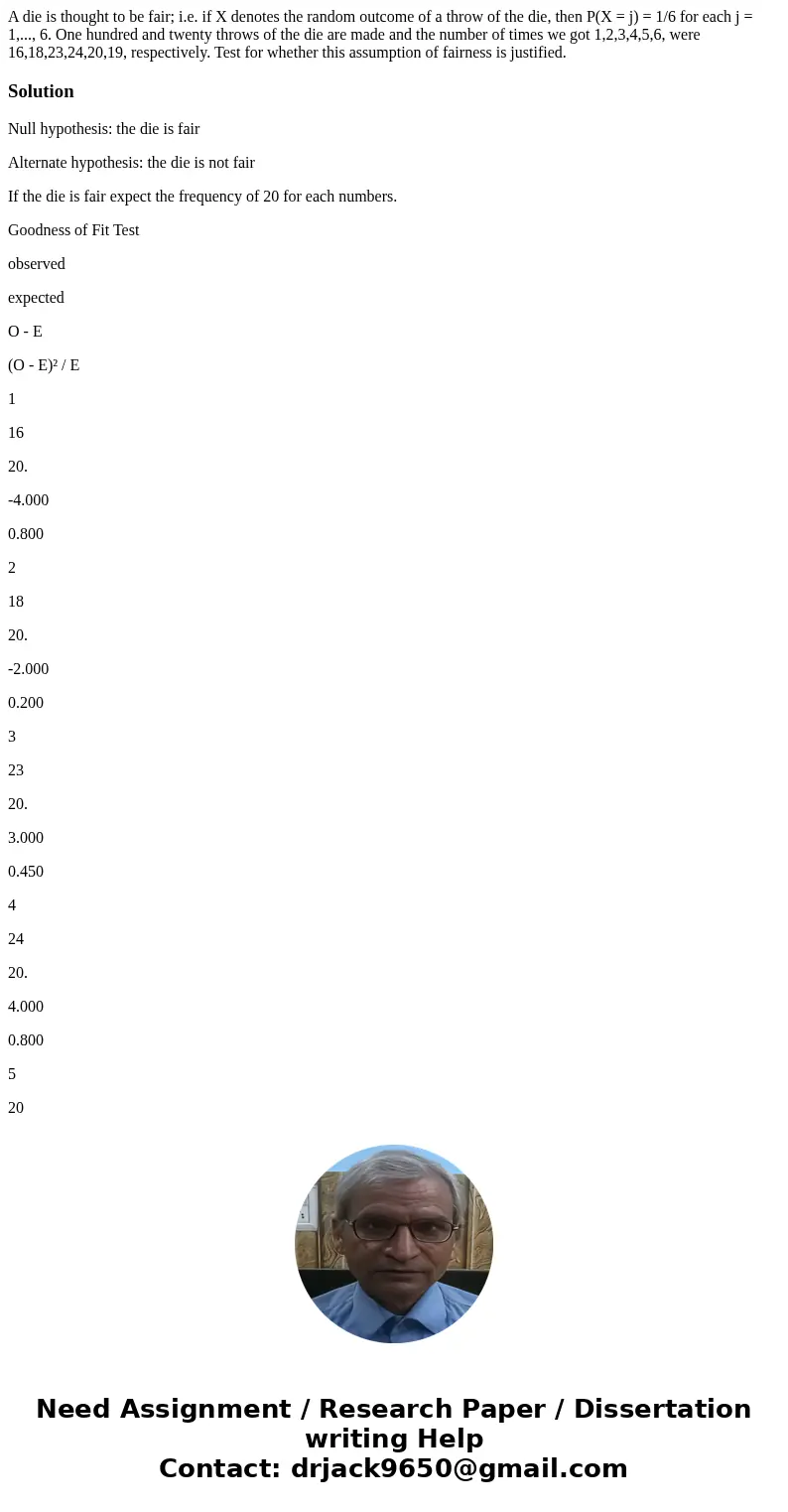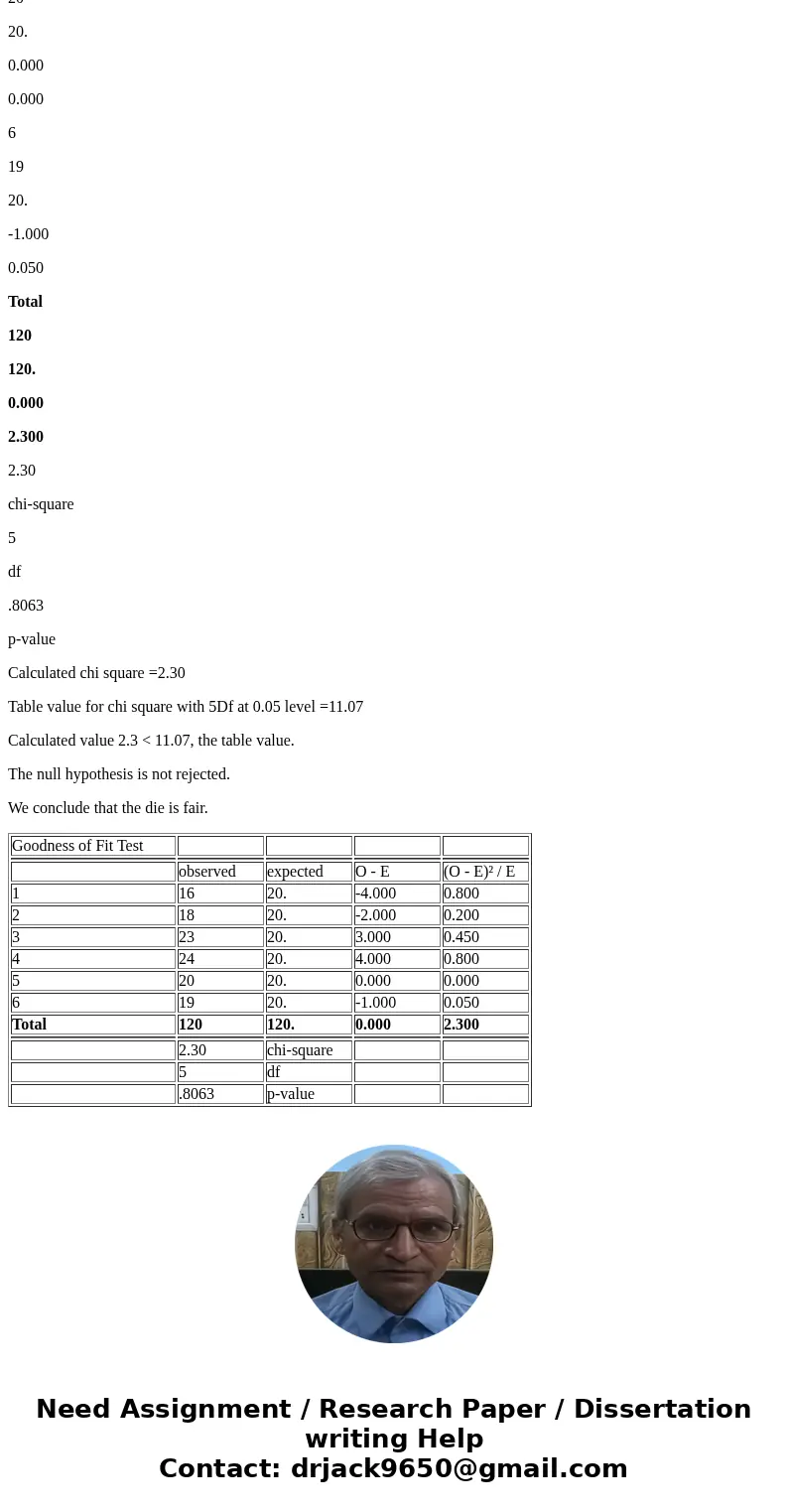A die is thought to be fair ie if X denotes the random outco
A die is thought to be fair; i.e. if X denotes the random outcome of a throw of the die, then P(X = j) = 1/6 for each j = 1,..., 6. One hundred and twenty throws of the die are made and the number of times we got 1,2,3,4,5,6, were 16,18,23,24,20,19, respectively. Test for whether this assumption of fairness is justified.


Solution
Null hypothesis: the die is fair
Alternate hypothesis: the die is not fair
If the die is fair expect the frequency of 20 for each numbers.
Goodness of Fit Test
observed
expected
O - E
(O - E)² / E
1
16
20.
-4.000
0.800
2
18
20.
-2.000
0.200
3
23
20.
3.000
0.450
4
24
20.
4.000
0.800
5
20
20.
0.000
0.000
6
19
20.
-1.000
0.050
Total
120
120.
0.000
2.300
2.30
chi-square
5
df
.8063
p-value
Calculated chi square =2.30
Table value for chi square with 5Df at 0.05 level =11.07
Calculated value 2.3 < 11.07, the table value.
The null hypothesis is not rejected.
We conclude that the die is fair.
| Goodness of Fit Test | ||||
| observed | expected | O - E | (O - E)² / E | |
| 1 | 16 | 20. | -4.000 | 0.800 |
| 2 | 18 | 20. | -2.000 | 0.200 |
| 3 | 23 | 20. | 3.000 | 0.450 |
| 4 | 24 | 20. | 4.000 | 0.800 |
| 5 | 20 | 20. | 0.000 | 0.000 |
| 6 | 19 | 20. | -1.000 | 0.050 |
| Total | 120 | 120. | 0.000 | 2.300 |
| 2.30 | chi-square | |||
| 5 | df | |||
| .8063 | p-value |


 Homework Sourse
Homework Sourse